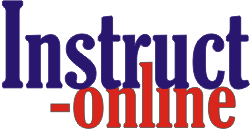
 Phone
(319) 626-2302
Phone
(319) 626-2302
Catalog Number : nad1665
Title : Ambulatory Surge Centers: Infection Control Standards
Speaker : Sue Dill
Webplay Recording Date : 3-15-2011
Webplay Price : $ 160 for two weeks viewing
Webinar Overview:
One of the hottest areas for freestanding ambulatory surgery centers in 2011 is infection control. CMS got a ten million grant to enforce infection control standards. Infection control is one thing the ASC must pay close attention. CMS found that in Nevada that 25 of the 46 ASC surveyed had serious deficiencies. This came after it was discovered that syringes were used over and over again and some patients contracted Hepatitis in an endoscopy center. CMS has even added an infection control works sheet that must be completed. Surveyors have been getting special training in infection control which means closer surveillance. Cleaning of endoscopes, flash sterilization, cleaning of glucose meters, single and multi-dose vials and safe needle injection practices are just a few of the many hot buttons.
CMS issued new Conditions for Coverage that every freestanding ambulatory surgery center (ASC) must meet if the ambulatory surgery center want paid for Medicare and Medicaid patients. The standards apply to all patients treated in the ASC including worker comp and patients with commercial insurance. These standards became effective on May 18, 2009 and contained 167 pages and 267 tag numbers. CMS amended these on December 30, 2009. There are 12 sections to the new regulations including one on infection control. This program will cover every tag number in the infection control section.
Target Audience
Anyone who is involved in ensuring that the patient has a safe and sanitary environment should attend this program. This includes:
- all Infection Preventionists
- Maintenance Staff
- Department Directors
- Performance Improvement Coordinator
- AccreditationStaff
- Chief Nursing Officer
- OR Director and Staff
- PACU Nurses
- Nurse Educator
- Nursing Management
- Physicians
- Nurses
- Administrator
- Risk Managers
- Legal Department
- Compliance Officers
- Dietician
- Environmental Services Personnel
- Biomedical Engineering
- Life Safety Code Director
- Employee Health Nurse
- Board Members
- Nurse Educator
- Compliance Officer
- Regulatory Compliance Director
- Patient Safety Officers
Webinar Objectives:
- Recall the CMS changes to the ASC Conditions for Coverage that affect the infection control
- Describe how to locate a copy of the ASC Conditions for Coverage
- Discuss those requirements for the ASC infection control program
- Discuss the importance of making sure the infection preventionist is qualified and competent
- Recall that the CMS interpretive guidelines has a infection control worksheet that ASCs should be familiar with
- Discuss that all new employees are required to have infection control training
Webinar Agenda/Outline:
- Introduction to ASC CfC
- How to obtain a copy
- How to keep apprised of changes
- CMS ASC website
- Infection control program to minimize infection
- Program to minimize communicable diseases
- Definitions needed
- Requirements of the infection control program
- Follow national recognized standard
- APIC, CDC, AORN, SHEA, OSHA, etc.
- ASC infection control challenges
- Injection practices
- Completion of the infection control worksheet
- Sanitary environment
- Ventilation and water control
- Safe air handling systems
- Cleaning and disinfecting environmental surfaces
- Techniques for pest control
- Sharp disposal
- Gross blood spills and decontamination
- Infection control program that is ongoing
- Documentation of nationally recognized standards
- Surveillance activities
- Maintenance of sanitary environment
- Mitigation of risks of healthcare-associated infections
- Revision of program
- Key functions of ASC
- Immunization
- Staff infection policy
- New employee training
- Surgery related infection risk mitigation
- Sterilization of equipment
- Flash sterilization memo from CMS and TJC
- Antibiotic prophylaxis
- Chlorhexidine new research
- Nasal colonization new research
- HAI risk mitigation measures
- Hand hygiene big issue
- Injecting medications and saline
- Disinfectant and germicidal
- Air filtration and UV lights
- Education of patient requirement
- Monitoring compliance
- Program evaluation
- Qualified infection preventionist required
- QAPI requirements
- Plan of action required for deficiencies
- What plan of action must include Infection control program/plan
Contact Hours:
This course has been approved for 1.2 Iowa Nursing Contact Hours. There is usually a reciprocal agreement between state associations to allow these to count for each state. If you have any questions, please ask your state association.
Refund Policy:
Full tuition is refunded immediately on request if the participant has not been sent the program materials and instructions. Once the instructions (including access codes) have been sent, a full refund will be issued only after the program runs and it is verified that the participant did not access the program
.